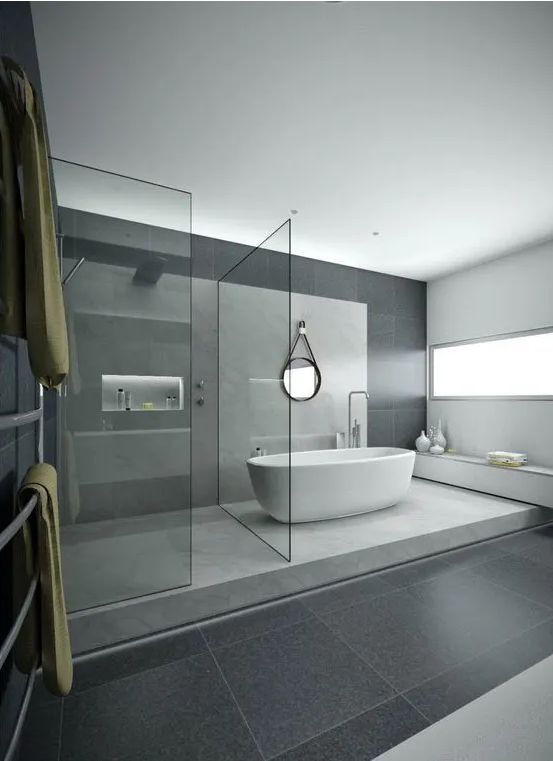
Choose A Natural Stone Bathtub That Is Both Antibacterial And Aesthetically Pleasing -
Recently, I accidentally discovered that natural stone bathtubs have become the focus of discussion. The bathroom is no more only a place to clean as people’s search of health and quality of life keeps developing; it is a private area where people may relax. Among the several bathtub materials, natural stone is particularly noteworthy for its distinctive texture and visual appeal—especially given its antibacterial qualities, which have grown to be among the highlights of our hot debate.
When discussing this topic, I felt some interesting contradictions: on the one hand, everyone praised the beauty and durability of natural stone, but on the other hand, there were some concerns and doubts about its antibacterial ability. After all, each day we come into intimate touch with the bathtub on our bodies. Should its antibacterial power be insufficient, our health might suffer. Therefore, I decided to study the antibacterial properties of natural stone bathtubs and discuss with everyone to what extent these “natural” materials can protect our health.

A natural stone bathtub in a light color can increase the sense of space
Basic properties and antibacterial ability of natural stone
As the name says, natural stone is a stone taken from nature—marble, granite, limestone, etc. Because of their unusual texture and color, these stones are frequently utilized in building and decorating. Usually robust and resilient, natural stone can withstand wear and scratches on its surface. Natural stone’s microporous nature, however, makes it a “living” material—that is, one with some water absorption and air permeability.
So, what effect does this microporous structure have on antibacterial properties? Actually, among the main topics we wish to investigate is this one. Little crevices on the surface of natural stone could allow fungus and germs to hide themselves to some degree. However, the density and hardness of natural stone itself, as well as some mineral components contained in them, can inhibit the reproduction of some bacteria. The stone’s natural antibacterial quality helps it to stay rather clean during usage.
Differences in antibacterial effects of different natural stones
Various kinds of natural stone also possess distinct antibacterial qualities. Granite, for instance, has a low porosity and a compact structure that makes it usually more antibacterial. Marble may need more frequent cleaning and care even if it seems lovely; it has rather big pores. Furthermore, even if limestone has a quite soft texture, under correct treatment it might exhibit significant antibacterial qualities.
It is worth mentioning that in recent years, some specially treated natural stones have appeared on the market. By means of nanotechnology or antimicrobial coatings, these stones have been treated to dramatically enhance their antibacterial characteristics. This lets natural stone baths keep their beauty while offering extra protection for our health.

Natural stone bathtub adds great visual value to the bathroom
Natural stone bathtubs: maintenance and care
Natural stone bathtubs offer certain antibacterial qualities, but regular maintenance and care are still required to guarantee their long service life and hygienic conditions. To prevent damaging the stone surface, first daily cleaning with mild detergues and soft towels. Second, some unique stone care products can be utilized; they not only efficiently clean the stone surface but also create a protective film on it to stop bacterial growth.
In addition, avoiding long-term water accumulation is also a key point. Natural stone has rather high antibacterial qualities, although a long-term humid atmosphere can still cause bacterial and mold growth. Thus, after using the bathtub, drain the water in time and wipe the surface dry, which can help to significantly stop the bacterial growth.
Environmental protection and health impact of natural stone bathtubs
In addition to antibacterial properties, the environmental protection of natural stone bathtubs is also a point worthy of our attention. Since natural stone is a renewable resource, mining and processing it is really easy and has little effect on the surroundings. Furthermore absent from natural stone are dangerous substances, no emissions, and no bad effects on human health during usage.
However, when choosing a natural stone bathtub, we also need to pay attention to the source and processing technology of the stone. Some dishonest stores could modify the stone with chemicals in order to increase surface shine or boost anti-fouling capacity. These compounds might influence our health and release toxic elements when used. Choosing reliable brands and providers is thus especially crucial.
Comparison of natural stone bathtubs’ antibacterial characteristics with those of other materials
When choosing bathtub materials, we might as well compare natural stone bathtubs with bathtubs made of other common materials. For instance, their smooth surface and simple maintenance make cast iron and acrylic bathtubs rather popular. These components also possess outstanding antimicrobial properties. But acrylic bathtubs are readily scratched, thus if the surface is damaged, bacteria can proliferate in the scratches rather quickly. Though cast iron bathtubs are robust and long, their antibacterial properties vanish once their surface coatings are compromised.
In contrast, natural stone bathtubs have a certain degree of beauty, durability and antibacterial properties. Although the surface of the stone’s pores could provide a hiding place for germs to flourish, good maintenance and care will help to sufficiently control these issues. Simultaneously, other materials are not easy to match the distinctive texture and visual impact of genuine stone.

Natural stone bathtubs combine beauty, durability and antibacterial properties
After an in-depth study of the antibacterial properties of natural stone bathtubs, I found that it is not only a luxurious decoration, but also a good choice that combines practicality and health protection. intrinsic stone’s intrinsic mineral composition and rough texture still provide some antibacterial power even if its microporous nature could constitute a secret hazard for bacterial development. Natural stone bathtubs can give dependable protection for our health with correct care and maintenance.
In general, choosing a natural stone bathtub is not only a pursuit of beauty, but also a choice of a healthy lifestyle. If you are thinking about including a new bathtub into your house, you might as well take into account this lovely and useful natural stone bathtub. Every bath will become an appreciation of close proximity with nature.




